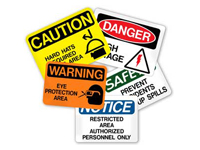
Air conditioner safety imperative
The seemingly inevitable summer outbreak of Legionnaires disease is a timely reminder to accommodation providers that air conditioning units must be serviced regularly.
The extreme and extensive heat wave that hit Australia through January saw air conditioners used at an unprecedented level for sustained periods, yet few outbreaks of Legionnaires disease were reported. In fact there were only 55 cases of Legionnaires disease reported in Australia in the whole of 2012, unlike Canada, US, Britain and Hong Kong where outbreaks were severe and frequent.
A coal seam gas accommodation complex at Bauhinia, west of Gladstone, was shut down after the discovery of the potentially fatal Legionella bacteria in its water system. Safety procedures in the camp, run by the Italian company Saipem for the Santos-controlled GLNG project, were quickly enforced.
A Santos spokesman said at the time, “Following Saipem’s standard protocols, the pipes in the camp will be cleaned and treated to kill the bacteria, until which time the camp will remain closed. Saipem advises no workers who were at the camp before its closure have reported any symptoms.”
Detection is not always that simple. The cause of an outbreak of legionnaires’ disease in Melbourne’s northeast remains a mystery after tests on a water cooling tower came back negative.
Adelaide also had a scare during the oppressive summer conditions when many of its public bus fleet had to shut off their on-board air conditioners because of the threat of Legionnaires disease – not good for consumers in 45° heat.
Legionnaires disease is a type of pneumonia and while some people infected with the bacteria can have mild or no symptoms, it can also be fatal. There are about 40 different strains of the bacteria and health authorities maintain about 10% of cases can prove fatal, so it should not be treated lightly.
The bacterium is commonly present in water. It is most active when the temperature of the water is between 20° and 45° and there is sufficient nutrient to support growth and multiplication. People may contract the fatal bacterial infection by inhaling steam or droplets of water containing legionella bacteria in aquatic facilities, spas and, most commonly, from air conditioning units.
Elderly people, people suffering from chronic respiratory illness or kidney ailments, smokers, heavy drinkers and people with impaired immune system have a higher risk of developing Legionnaires disease.
The risk of Legionella outbreaks can be significantly reduced by identifying the possible sources of the bacteria, analysing the water sample and applying appropriate strategies for controlling legionella growth. It is always advisable to assign the task of risk assessment and monitoring the water system to a professional water management agency that has the necessary expertise to undertake the task.
Regular cleaning and maintenance of air conditioners should be a regular maintenance feature for all accommodation providers especially for split systems that get almost constant use summer and winter

AccomNews is not affiliated with any government agency, body or political party. We are an independently owned, family-operated magazine.







